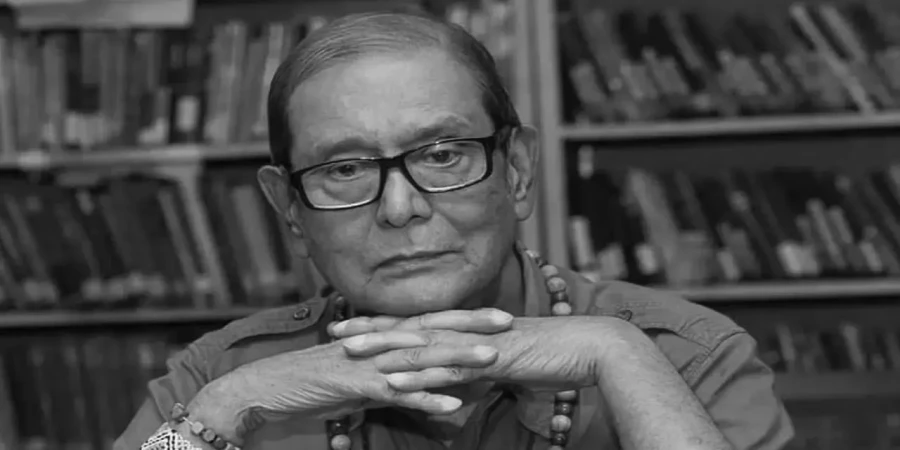
ছবি: Poet Helal Hafiz. Photo: Collected
Celebrated Bangladeshi poet Helal Hafiz, known for his powerful verses on rebellion and love, passed away on Friday, December 13, at the age of 76. He was pronounced dead by doctors at Bangabandhu Sheikh Mujib Medical University (BSMMU) in Dhaka after being brought in unconscious.
Reports suggest that around 2:00 PM, Hafiz was found unresponsive in the washroom of Shahbagh’s Super Hostel. He was rushed to BSMMU, where the attending doctors confirmed that he had passed away before arriving at the hospital.
His funeral prayer is scheduled to take place on Saturday, December 14, at the National Press Club in Dhaka.
Helal Hafiz had been suffering from multiple health complications for years, including glaucoma, kidney issues, diabetes, and neurological problems. Born on October 7, 1948, in Netrokona, Hafiz rose to prominence with the publication of his first poetry collection, Jey Joley Agun Jwole (The Water Where Fire Burns), in 1986. The book, which has been reprinted more than 33 times, solidified his place as one of Bangladesh’s most cherished poets.
In addition to his literary contributions, Hafiz worked as a journalist for several newspapers, including Daily Jugantor. His poems often became rallying cries during significant moments in the nation’s history, such as the anti-authoritarian movements of the 1980s. His famous line from the poem Nishiddho Shompadokiyo (Forbidden Editorial), “Ekhon joubon jar, michhile jabar tar shreshtho shomoy” (Those in their youth, this is their finest hour to join the marches), became a powerful slogan during protests.
In recognition of his literary contributions, Hafiz received numerous accolades, including the Bangla Academy Literary Award in 2013 and the Khaleqdad Chowdhury Award. His legacy as a poet of rebellion, passion, and profound depth will continue to inspire generations to come.
repoter






